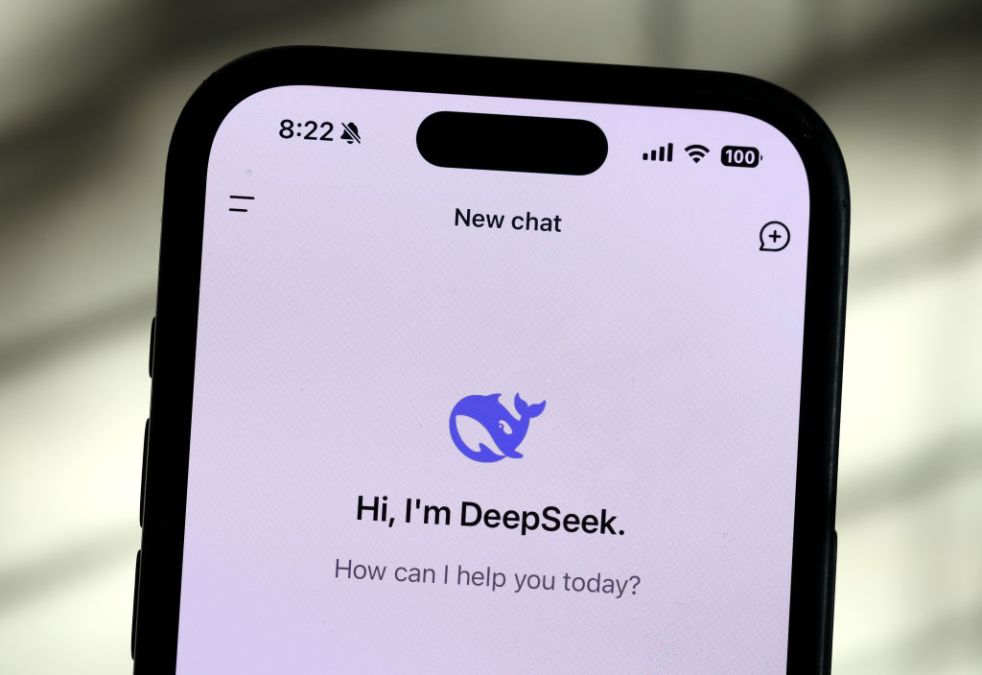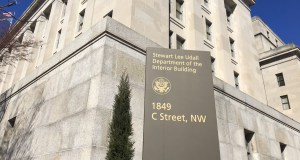Federal workers rarely seek DeepSeek, but it’s happened

By and large, people don’t seem to be trying to access technology created by DeepSeek — the Chinese AI firm that’s rattled leading U.S. AI companies and lawmakers — on government systems. But it has happened at least once at a federal civilian agency.
Since January, there’s been one attempt to access DeepSeek at the U.S. Department of Agriculture, a spokesperson for the agency confirmed to FedScoop. The USDA successfully prevented access to the technology and has blocked DeepSeek through Microsoft’s Defender for Cloud Application service since Jan. 28, the spokesperson added. DeepSeek is banned along with other public AI sites “based on risk levels that Microsoft provides in their Defender applications,” the person said.
The agency did not say whether there were attempts to access the technology before the block was implemented.
Lawmakers are increasingly concerned about DeepSeek, a China-based large language model developer that threatens the dominance of American AI companies like OpenAI and Anthropic. In the view of many federal officials, the company’s technology raises serious security concerns.
On Wednesday, lawmakers proposed the No Adversarial Al Act, which would ban the use of DeepSeek on government devices, create a registry of foreign adversary AI systems and establish a method for these technologies to be delisted.
There have been other proposals to both ban DeepSeek on government devices and bar its use by federal contractors. A U.S. official recently told Reuters that the AI firm is assisting Chinese military and intelligence operations, including by helping the government skirt export controls on chips.
Press representatives for the House Select Committee on China, the panel in which the bill was introduced, did not immediately respond to FedScoop’s question as to whether they were aware of any attempts to use the technology on government services.
When DeepSeek first came out, the Office of the Federal Chief Information Officer conducted a very informal review that involved some White House staff reaching out to a number of federal agencies to determine if the technology was being used. However, nothing significant came of that process, a former White House AI official told FedScoop.
One source said they hadn’t received anything from the Federal CIO’s office on DeepSeek. A request for comment from the Office of Management and Budget, the White House agency that houses the Office of the Federal CIO, did not receive a response by publication time.
Agencies take proactive approach to DeepSeek bans
The movement to pass a law officially banning DeepSeek on U.S. government systems is growing, but many federal agencies have already taken action to limit the service on their devices and networks. In January, NASA banned access to DeepSeek, CNBC reported. The Pentagon also blocked access to the tool that month after some employees were found to have used the service, Bloomberg reported.
The Department of Commerce banned DeepSeek on government devices, according to a Reuters story published in March. The U.S. Navy and the House have also taken action to prevent the use of the technology.
The Transportation Department formally blocked DeepSeek on Jan. 30, though there were some initial challenges blocking all the URLs for the application, an official at the agency told FedScoop.
At the Treasury Department, there was no need to explicitly call out DeepSeek because the agency’s existing IT supply chain would have already prevented its use, a former agency official told FedScoop.
The Department of Energy, meanwhile, immediately blocked DeepSeek when the technology was released in January, a former agency official said.
In March, Energy’s chief information officer signed a memorandum to the other CIOs within the department, “indicating that DeepSeek and its products are not authorized to be accessed or used on DOE assets or personal devices used to access any DOE network,” a spokesperson for the agency added.
“Any violation of this must be reported to the local Chief Information Security Officer. The memo allowed exceptions, with conditions, for AI research and development at national labs,” the spokesperson said. They also noted that the department is aware of DeepSeek and all AI applications because the agency deploys a supply chain risk assessment program that reviews all the applications used on its networks.
Complete bans on the technology are complicated by the fact that government workers may try to access the technology for research and other purposes. The No Adversarial AI Act, for example, includes exceptions for certain applications, including research, counter-terrorism efforts, and “mission-critical needs,” a press release said.
But while there might be some benefit to formally banning DeepSeek, the reality is that the technology was already restricted, and where it was used, there may have been good justifications, a former government official with knowledge of the issue told FedScoop. It would be more important, the person said, for Congress to help federal staff have access to technology that is better than DeepSeek so that they can enjoy the efficiency of using generative AI without having to turn to “worse Chinese models in the first place.”
The Department of Justice declined to comment and several other CFO Act agencies didn’t respond to a request for comment.






